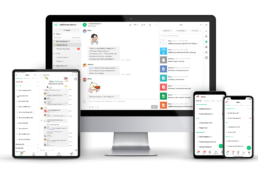South Korea’s GDP is 10th in the world with a total of $1.66 trillion as of 2021. A small country like South Korea has made the top 10 because they have made a concerted effort to open up its economy to foreign players. Therefore many foreigners are interested in starting a business in Korea. However, starting a business in Korea is very different from the UK or US. First off, you will notice that the Korean government has more involvement in the business world. Therefore expect a lot more paperwork. In addition, there are different sets of laws that one must follow to be able to have a smooth operation in one of Asia’s leading business countries.
In the end, it will be worth it as South Korea is one of the most fast-paced and rewarding business environments not only in Asia but in the world. Plus, South Korea is seeking to grow by reaching out to new markets not only in Southeast Asia but also in Europe and the US. Therefore there will be many Korean companies eager to form new partnerships and collaborations with companies that have access to these markets.
Some of the other reasons why you should start a business in Korea include:
- Educated tech-savvy customers with high literacy and secondary education rate.
- Korea has multiple dense cities. For example, Korea has 9 cities with over a million people.
- South Korea is located between Japan, China, and other Asian countries. Therefore it is the optimal location to gain a foothold into Asia.
- Korean consumers like overseas products. The right trend can go viral very quickly.
- The South Korean government offers economic free trade zones and tax rebates. In addition, South Korea has Free Trade Agreements with the United States, UK, and the European Union.
- South Korea stays current with international trademarks and patents for the protection of IP. This includes the protection of emerging fields such as eCommerce.
This article will feature my 10 things to consider before starting a business in Korea.
Top 10 Tips for Starting a Business in Korea
1. Find a local partner in Korea (representative/cofounder/manager/etc.)
When planning a business, or launching a new brand, an analysis of the external environment would become the prior task to be done ahead of anything. Especially when you are beginning, relocating, or expanding your business in Korea. I have consulted many foreign entrepreneurs in South Korea and helped them launch successful businesses in Korea. The key to their success has been finding the right partner in Korea. Some have signed off partnerships with Korean companies who have acted as distributors, representatives, or HR specialists.
Korean companies will be crucial in receiving realistic field insights in regards to distribution and local statistics that are required for strategic marketing. This is why I recommend finding an HR specialist that can recruit the required resources and set up a proper business organization in Korea.
This first tip is very important and is why I put it #1 because this will minimize the risk when establishing a legal entity in Korea. If you don’t have a partner in Korea this should be your first step. Finding the right partner would eliminate huge disadvantages you might run into if you can’t speak Korean. Finding the right person or company will not be easy. Many are not fluent in both Korean and English. A good source would be to search on LinkedIn and see which individual or company is actively using LinkedIn. This will be a strong signal that they are open to working with global companies.
2. Find the Right Location in Korea

Wall street = finance, Silicon Valley = Ventures/Startups, likewise, in Korea, the location of your business certainly defines some images of your company. When we were first starting our case of implanting foreign businesses in South Korea, this was the major reason we chose Gangnam to set up our office. Gangnam is very expensive but the name Gangnam comes with it a brand image in Korea. Having an office located in Gangnam instantly gives your company credibility, which is why office prices in Gangnam are so high. However, there is a wide selection of co-working spaces in Seoul you can choose from.
Another option would be Pangyo Techno Valley, a tech hub located south of Seoul, and 20 minutes by express subway from Gangnam station. It is called Korea’s Silicon Valley and is home to over 1,300 companies.
3. Many Things are Flexible Depending on What you Know and Who you Know
While I was actively working as a business interpreter, I had valuable opportunities to interpret between business meetings, partnership meetings, lectures, and some key negotiations. Through this, I recognized the different behaviors of South Koreans when they dealt with their counterparts depending on some key factors. Knowing these factors will be very important in how you do business in Korea.
- Do you have a business relationship that has been built over a long time? Koreans like working with those that have some history. Therefore when networking in Korea, try to develop a relationship with them first, before going straight to business. Don’t be too aggressive from the start. Many Koreans will be turned off by it.
- Can you speak/understand Korean? Many Koreans can’t speak English. Therefore even if your company is the perfect match, if they can’t communicate with you, they will move on to someone else. This is why having a partner in Korea that speaks Korean is important. Or else, make a strong effort to learn the Korean language. It will go a long way if you are planning to start a business in Korea.
- Do you have a local network in your country that could benefit them? Korean companies are constantly looking for ways to expand into new markets. If they help your company in Korea, in many cases they would expect the same in return if they ever plan to enter your market. For example, if you are coming from the UK, make sure you have a strong network in their industry that would appeal to them.
- Do you have an overall knowledge of the local industry you are trying to enter? Koreans will test you to see just how much you know about your industry. If you know too little, they can easily take advantage of you, if you know too much, they might feel intimidated. The right balance is to have a general overall knowledge of the local industry and stress that your company needs help in the key details.
4. Adopt a Fast Working Culture
While in the past, Korea was about working hard and for long hours, a shift has come in the work of quick-paced work. Therefore, when starting a business in Korea, things have to be done at a quick pace. This includes responding to messages (email/Kakao/text messages), completing payments, providing reports, and etc. Because the fast deliverance of results is often considered as a large portion of your performance in Korea.
Be careful not to overdo it. Sometimes focusing on “how quick” can compromise the “how good” when evaluating one’s performance. Having a slow laid back working culture will not work in Korea, you will not be able to compete. However, do not compromise your product or service for speed. Just understand that many Koreans make speed a priority in most of their business dealings.
5. Understand the Visa Requirement Process
Unless you have an F2, F4, F5, or F6 Visa (Long-term residence, Permanent Residency), you should convert your Visa to a D8 or D9. Below are the types of South Korean Visas which you can switch into a D8 or D9 Visa.

Basic conditions to achieve D8 or D9 Visa
D8 Foreign Investment Company Visa
- Corporation investment, minimum of 100 million KRW
- Restaurant investment, minimum of 300 million KRW
D9 Trade & Management Visa
- Private investment, minimum of 300 million KRW
The visa process can be difficult which is why you need to have the right partner that can guide you along the way. In addition, many rules and regulations can change so you need to be constantly staying on top of the Visa process.
6. Types of Corporations You Need to Consider
There would be 4 options that I would recommend, but each come with their pros and cons. In addition, depending on your current business status, your preferences can always change.
Local Corporation (Direct Investment by Foreigner)
This is when an individual with a foreign nationality invests more than 100 million KRW for establishing a legal entity in Korea. Though it requires a lot of paperwork during the procedure of the establishment, it would provide you with legal protection, easier circulation of capital, external credit, and many other merits. It would take a minimum of two months to start running your business in Korea. My advice is to have your company incorporated as a limited liability company. This is very similar to a limited liability company or LLC in the United States. Make sure you have one director and a shareholder. These people do not have to be Korean. Once this is set up you can apply for an entrepreneur D-8 Visa.
Individual Business (Direct Investment by Foreigner)
Individual business comparatively has an advantage in regards to an easier opening, closing, and temporary closing of the business. On the other hand, it has some weaknesses in regards to loans and hiring employees because it owns low external credit. Furthermore, individual businesses can only be made by certain Visa types.
Local Branch of Foreign Corporation
This is a method for expanding businesses into South Korea through the fulfillment of establishment procedures based on the Foreign Exchange Transaction Act. By designating a representative for the Korean branch, it will enable the foreign corporation to operate general business activities in South Korea. The branch would be approved as a permanent establishment as it proceeds with activities that will generate profits in South Korea. Therefore it will apply the same corporate tax rate on generated business profits as any other general legal entity.
In the case of Account and Balances, the balance of the Korean branch would go under the jurisdiction of the overseas HQ, and when the content of the Account & Balance does not match, your company may have to face applied tax laws for both countries of the HQ and the branch.
The duty of tax payment would be applied to the domestic source of income returned from South Korean soil. Labor Laws and Tariffs would differ by the conditions such as the deployment of employees from HQ, Origin of Invoice, Volume of Invoice, etc.
Liaison Office
Unlike a branch office, a Liaison Office can only operate non-sales activities (Marketing, Market Research, and Networking). Its operation is limited to preparing or supporting businesses. Direct sales or the maintenance of inventory assets are not approved. The tax office of your jurisdiction will grant you a registration number, but will not require a registration form as complicated as establishing a Local Corporation or Branch Office. However, similar to a branch office, this structure can be seen as a foreign corporation.
7. Start with a Liaison Office
Consider all options but my recommendation would be to start with a Liaison Office if your business either lacks local experience or does not have enough resources to handle the early process of establishment. The Korean government has provided a bit of flexibility for Liaison Offices. Therefore they can take the same level of credit as other legal entities. This would give your business a huge benefit to gaining external credit while setting up your business.
Free from Account & Tax Audits
Secondly, your business will become free from Account & Tax Audits. Local corporations and branch offices would have to record their entire activities comprising of expenditures. This could open them up to potential tax audits. However, a liaison office doesn’t have any constraints on expenditure records except operation fees or salary payments for deployed or hired employees from HQ. If $2,000-$4,000 worth of cash is being regularly sent to the Liaison Office for salary purposes, the Korean government may apply a 3.3% tax to the employee. In addition, a Liaison Office can easily be converted into a Local Branch Office of the Foreign Corporation.
The process required for the establishment of a Liaison Office is the same as a Local Corporation or Branch Office. The only difference is that with a Liaison Office, you will not have to register with the Korean Court. Therefore, you can wait until you get firm assurance on your business preparation in Korea, and then by registering your company with the Korean Court, you can simply switch your business into a legal entity to start your sales activity.
8. Open a Korean Bank Account
Setting up a bank account in Korea can be difficult. For this process, you will for sure need a partner or someone that is fluent in Korean. The details you need to provide will differ on what kind of bank account you are opening up. However, some requirements are constant. When going to set up your bank account at a Korean bank, you can expect to provide:
- Business registration proof
- Company stamp
- CEO signature
- CEO ID
- Company ownership details
- ARC Card
The Best Banks in Korea for Foreigners
South Korea has many banks to choose from. My recommendation would be to go with either of these 4 banks.
- Woori Bank
- Shinhan Bank
- Hana Bank
- Kookmin Bank
All 4 provide online banking. Online banking will give you access to transaction records and quick access to payments. Hana Bank offers foreigners to come in on a Sunday for their banking needs. This is a huge help, especially for those that do not have time to come on a weekday.
9. First Hire Should be a Korean Manager
Hiring in South Korea can be difficult, especially when hiring a Korean manager that can communicate with your global company staff. Don’t assume that just because the Korean manager’s English is impeccable they’ll be able to run the business properly. What is more important is that they have a smart business mind. I would recommend bringing the hire over to your HQ to learn the ropes for a few weeks. They can then return to Korea with all the company’s values and best practices in mind before starting the business in Korea. From my experience, it is best to target Korean Americans or Koreans who were schooled abroad in the US or UK.
10. Know the Culture in Korea
 Remember that you are now doing business in Korea and therefore it is important to familiarize yourself with a couple of cultural practices in Korea. It is very helpful to learn about the traditions and culture of the country. Most importantly their practices when it comes to everyday interactions and communication. Remember to follow Korean holidays, special occasions, and special cultural practices observed in Korea. Remember the proper business etiquette and always maintain a level of respect for your elders.
Remember that you are now doing business in Korea and therefore it is important to familiarize yourself with a couple of cultural practices in Korea. It is very helpful to learn about the traditions and culture of the country. Most importantly their practices when it comes to everyday interactions and communication. Remember to follow Korean holidays, special occasions, and special cultural practices observed in Korea. Remember the proper business etiquette and always maintain a level of respect for your elders.
In addition, knowing these things will help you draft a good benefits program that will address the needs of your Korean employees when it comes to their welfare. Furthermore, by adapting to the culture of Korea, you will be able to impress your Korean business partners and it will show that you are very respectful of their culture; thus, you will gain an advantage for the growth of your business.
Conclusion
Starting a business in Korea can be a complex process. Therefore, I started Terminal, an international startup agency to help global businesses enter the Korean market. Korean laws and regulations are constantly changing so it is prudent to always be on the lookout for any new developments. Always keep yourself updated with the latest laws and regulations, so you minimize the stress it can cause. This is why I recommend you have a trusted third-party company. They will deal with all the technical details of a business set up in Korea, so you don’t have to worry about a lot of things. This way, you will be able to concentrate on the important things that you need to do when you are in the process of creating your presence in the business world of Korea.
This article laid out some key points and answers to questions we received during our consultation with foreign startups. By combining this information, we believe you can easily plan out and beware of things before starting a business in Korea.
Popular
Related Posts
SaaS Startups in Korea Offering Business Solutions for Retail
February 25, 2024
5 Step Guide to Setting up a Business in Korea as a Foreigner
September 8, 2023







Good article
This is really helpful for me, a UK national planning an individual business. Thank you for publishing this. Are there any links I could possibly find to learn about visa types for Individual Business?